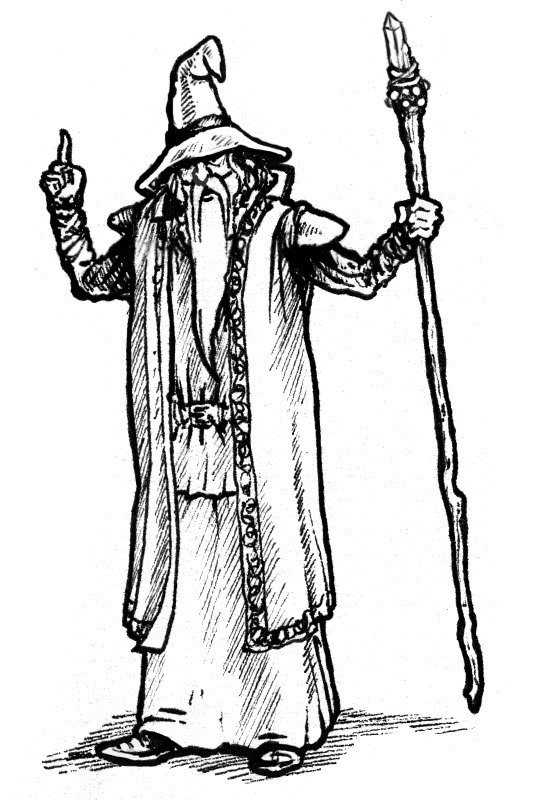Game time is precious time. But all too often, we don’t use it as effectively as we could. Follow these five easy tips to speed up your game play today!

I’ve previously blogged before about getting together a gaming kit and having good gaming habits. In this article, I discuss other ways to speed up play. It makes sense, after all, to get as much done as possible in each gaming session (while having fun).
Some simple and easy tactics to speed up play include:
- Have a Treasurer: It speeds up play if one player keeps a list of all found treasure. It also means, treasure doesn’t get lost or misappropriated. Ideally, a player who likes bookkeeping and can work out treasure shares between sessions will take on this role.
- Have a Marching Order: When exploring a sunken tomb, the trackless depths of a mountain range or a ruined castle it’s a good idea to know everyone’s location. Setting a marching order enables the players and GM to quickly and easily note who might hear a certain sound, spot a skulking enemy or (inevitably) get injured by the exploding door trap. It’s worth deciding on a order for a variety of situations. In a dungeon for example, having a marching order for 5 ft. and 10 ft. wide passageways covers most eventualities.
- Have a Watch Rota: It seems adventurers are almost always sleeping somewhere they shouldn’t. Whether it’s in a camp deep in the woods or in the depths of a dungeon, such locations are often rather dangerous. Sleeping without a watch is perilous at best and suicidal at worst. That said, discussing the watch rota every day is both boring and pointless. Decide a watch rota once, write it down and stick to it.
- Know Your Role: Irrespective of your character’s race and class, your character should fulfil a certain role within the party. Know what that roles is and –crucially – fulfilling it not only speeds up combats and other challenging situations, but improves the survivability of your character (and his companions).
- Help the GM: The GM is a busy chap. He’s drawing maps, answering questions and plotting against you. Helping him by keeping the play area clean and tidy is an easy win. This could include cleaning off the battle mats, putting away figures, keeping track of initiative, getting him a drink and more.
Help Your Fellow Gamers!
Do you have any more tips to speed up play? Share them in the comments below and help to speed up you fellow gamer’s games today!
This post is part of a week-long celebration of my 10-year-old son starting his first campaign for a group of his friends. He’s been slaving away over his dungeon for weeks and hopefully, they all enjoy themselves and become life-long gamers. I also get to play in the campaign, but of course I’m playing the cleric…
I would add -*Know* what you want to do when it’s your turn.
That’s a great addition. Thanks for the suggestion!
I completely agree. I would add, in order to know what YOU want to do on your turn, *PAY ATTENTION* to what your fellow players, and the monsters/NPCs, are doing and plan your turn accordingly.
Two things I’ve found that work wonders in certain games with lots of modifiers (Pathfinder being the worst one I can think of):
1 – Add up all of your most common modifiers to various attacks ahead of time and have them written down so that you aren’t doing the math during the combat round.
2 – Roll your attack and damage together at the same time. Combined with tip #1, any character attacking NPCs/monsters can get through his turn in a 30 seconds or less. A little longer if he’s high level and has multiple attacks, but you get the idea.
Yes excellent
Even faster – skip the watch rota. Use the marching order. Lead PC gets watch first night, next in line on night 2, etc. Anything interesting happens that night, it happens on that PC’s shift (in game, each PC takes a shift every night so everyone can get sufficient rest).
Technology as an Advantage:
if the game ends in a town or downtime area use email, face chat or any group chat to do all the mundane gaming. shopping, making arcane items, gear & weapon repairs, low level RPG in a bar for information or a gambling room etc.. so when the group hits the table some of the foot work is done. The Adventures can get on the road towards another quest and combat, players love their combat.
To add onto George Mattson’s #2, it can be great to have multiple sets of colored dice to easily handle multiple attacks in one roll. I have about six sets of 10 dice (each set 4d6 plus one of every other standard polyhedral).
For example, my sixth level Unchained Monk of the Four Winds (Pathfinder) gets three attacks per round when using Flurry of Blows. I pair a red d20 with a red d8, a blue d20 with a blue d8, and a green d20 with a green d8, establish which color is the 1st/2nd/3rd attack, respectively, roll them all at once, and can work through which set hits and how much damage is dealt in a few seconds. Rolling each dice individually is plain inefficient and drags out combat. Don’t be that guy/gal.